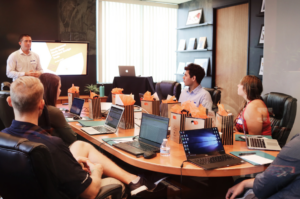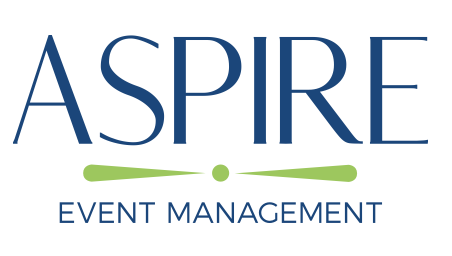As a corporate event planner, one of the most crucial steps in ensuring the success of our clients’ event(s) are conducting a thorough site visit of potential properties. Whether we’re organizing a conference, trade show, or a high-profile meeting, a site visit is our opportunity to evaluate the location firsthand and make informed decisions. Here’s a comprehensive guide we follow to conduct a successful site visit with and for our clients:
- Pre-Visit Preparation:
- Define the Objectives: Before visiting a property, we clearly outline our client’s event goals and objectives, program and space requirements, on and offsite activities, and expectations.
- Create a Checklist: We develop a checklist and overview of key criteria such as capacity, layout, amenities, and accessibility to ensure all essential aspects are covered during the visit.

- Schedule the Visit:
- Plan Ahead: We strive to schedule site visits well in advance to ensure availability of the property. We often recommend scheduling site visits at least 2 years prior to your event to guarantee your preferred event dates are available. Trends indicate that groups are contracting sites up to 5 years or more in advance.
- Consider Timing: We build our site itineraries with time to tour 2-3 sites within the surrounding area. Setting appointments and time to visit any offsite activity locations, including restaurants, is also important.
- During the Visit:
- Tour the Space: We thoroughly inspect and collect data on the event spaces, as well as the hotel spaces. (e.g. boardrooms, ballrooms, breakout rooms, restrooms, outdoor event spaces, guest rooms, hotel bars and restaurants, etc.)
- Meet with Department Leadership: It’s important that we know who we are partnering with on events to understand their service levels as well as any limitations relating to sustainable practices, operating hours, etc.
- Assess Accessibility: We consider the venue’s accessibility for attendees, including proximity to airports, public transportation, and accommodations. We even will take the route to the venue that most attendees will take and do our best to put ourselves “in their shoes”.
- Evaluate Ambiance: We pay attention to the overall ambiance and decor to ensure it aligns with the client’s event theme and objectives. Making sure to ask ourselves “how would the attendee feel here?”. We assess lighting, noise levels, smells, and other surroundings to gain a better understanding of the attendee experience.
- Ask Questions: We don’t hesitate to ask detailed questions about the venue’s policies, pricing, and any additional services they offer. How long has staff been working at this location? When was the venue last renovated? Will there be any construction at the time of the client’s event? Questions such as these, and so many more give us a clearer picture as to how the event would look and feel at that location.

- Take Detailed Notes:
- Document Everything: We take detailed notes, photos, and videos to help our clients remember the venue’s features and compare it with other options. We maintain this information so we can refer to it for other clients and for our own research and planning needs.
- Consider Logistics: We note any logistical challenges or considerations such as load-in/out areas, storage space, and vendor access. Often clients have specific needs for their event, and we must ensure the space will accommodate them.
- Post-Visit Evaluation:
- Compare Options: After visiting multiple venues, we compare their pros and cons based on our checklist, notes, photos and videos.
- Review Contracts: We carefully review the venue’s contract, including pricing, cancellation policies, and any restrictions.
- Follow Up: If we have any additional questions or need clarification, we don’t hesitate to follow up with the venue.

- Final Decision:
- Consider Feedback: We consult with our team and the client to gather feedback and insights before making a final decision. We also reach out to our network for their feedback about the property if they’ve held an event there.
- Negotiate Terms: Once a venue has been selected, we negotiate the terms of the contract to ensure they’re in the client’s best interests and meet event needs.
- Conclusion:
- Stay Organized: We keep all our site visit notes, contracts, and correspondence organized to facilitate the planning process.
- Communicate Effectively: We maintain open communication with the venue staff throughout the planning process to ensure a seamless event experience.
Conducting a thorough site visit is a critical step in the event planning process that can ultimately determine the success of events. By following these guidelines and being diligent in our evaluation process, we can meet all our clients’ requirements and provide the perfect experience for attendees.
